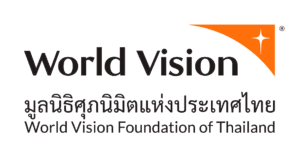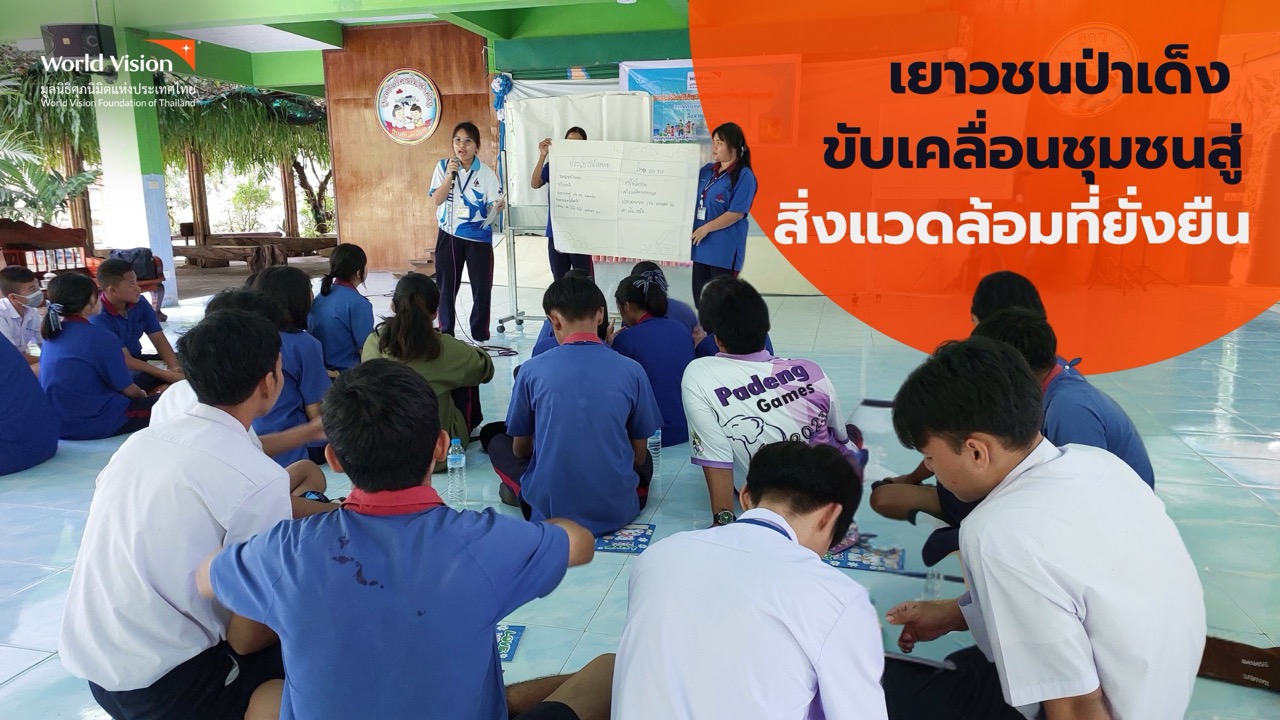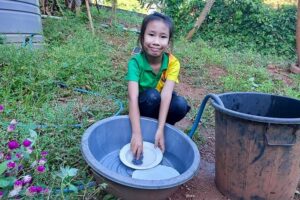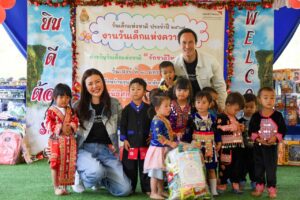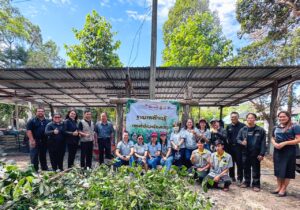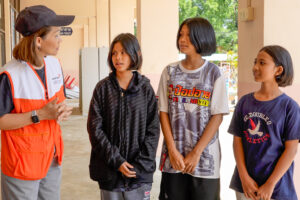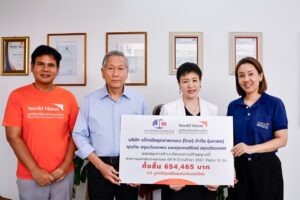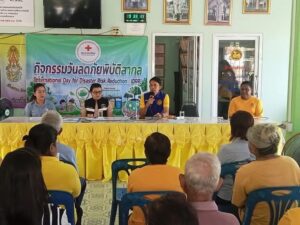Amid the beautiful natural surroundings of Pa Deng Community, located in Kaeng Krachan National Park near the Tanawsri Mountains on the Thai-Myanmar border, the community, with its simple lifestyle, is home to the Karen people, who make up 80% of the population. However, the community faces chronic environmental problems due to improper waste management. Waste that is carelessly discarded pollutes the air, water, and environment, directly affecting the lives of people in the community and educational institutions in the area.
From these issues, the youth leaders of Pa Deng Wittaya School, supported by World Vision Thailand, raised an important question: “How can we manage the waste problem in our community?” This question not only reflects awareness of the issue but also marks the beginning of an initiative to reduce waste in the community, decrease the use of plastic bags in schools, and reduce air pollution. The project involves collaboration from various sectors, including Pa Deng Sub-district Administrative Organisation, World Vision Thailand, schools, and the community, with youth playing a central role.
The Beginning of Change
Kayarat, or O, an 18-year-old girl, describes the waste problem in the community: “The waste piles in the community emit foul odors, produce wastewater, and attract animals like stray dogs and wild elephants. Especially during the rainy season, the polluted water from the waste seeps into the ground, contaminating natural water sources. These issues affect both the environment and our health.”
The voices of youths like O have motivated the youth leaders to initiate a campaign to reduce the use of plastic bags in schools and develop a waste separation system. Phitak, an 18-year-old youth leader, explains: “We raise awareness among ourselves to use food containers instead of plastic bags and to separate waste before disposing of it. The collected plastic waste is sold to generate income, while biodegradable waste is managed appropriately.”
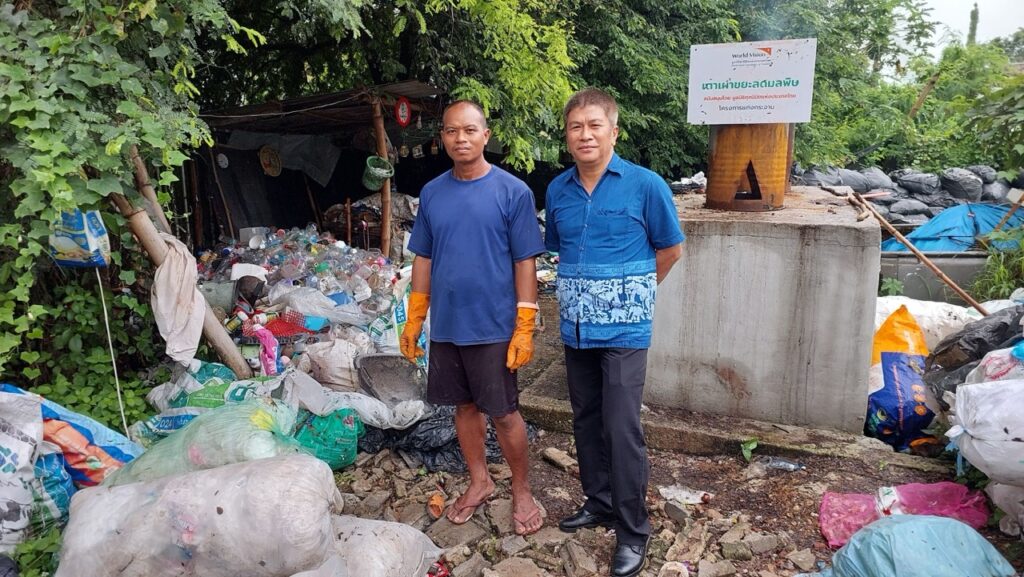
Community Collaboration and Environmental Innovation
The youth group’s initiative has not only brought about change in the school but also inspired the community and local authorities to get involved. Pa Deng Sub-district Administrative Organisation has supported the construction of a special waste incinerator that helps reduce carbon monoxide and improve complete combustion. Additionally, they have developed a biogas system by fermenting organic waste in a biogas pit to produce gas for household cooking.
Mr Koson Saengthong, Deputy Chief Executive of Pa Deng Sub-district Administrative Organisation, adds, “The use of biogas helps reduce the use of LPG in households and also decreases methane emissions into the atmosphere, which directly contributes to reducing global warming and improving the quality of life in the community.”
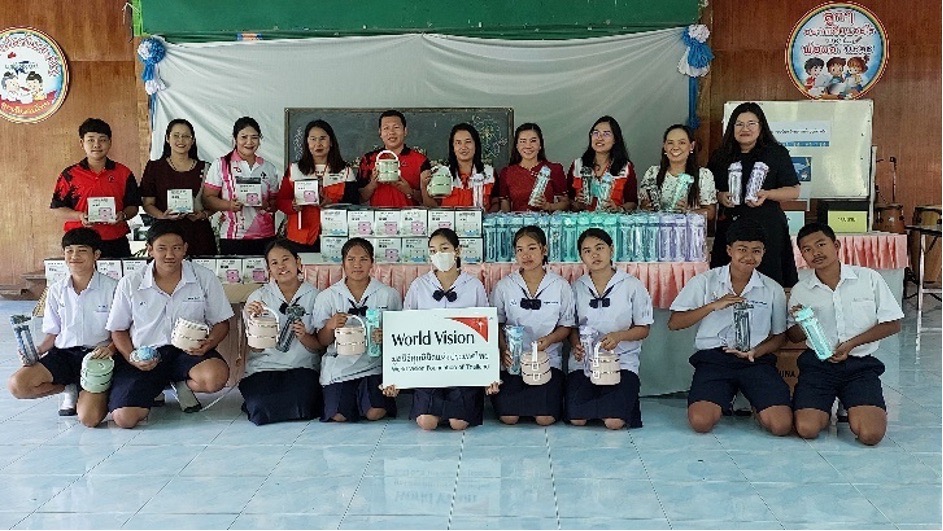
The Power of Youth Driving the Community
The success of this project reflects the power of youth, not only in creating change within schools but also in connecting to the overall development of the community. Promoting life skills, leadership skills, and a sense of public-mindedness has become a crucial foundation for sustainable development.
Today, Pa Deng Community not only has a better environment but also youth who are ready to grow into future leaders. The most important value they hold is the belief that change begins with ourselves.
